
Sayeed’s swearing-in as the 12th Chief Minister brings to an end to 49 days of Governor’s rule imposed on the state since Omar Abdullah resignation. (Photo: On Islam)
Srinagar, 12 Jumadil Awwal 1436/3 March 2015 (MINA) – For the first time in the country’s only Muslim-majority state, India’s ruling Hindu nationalist party was sworn into government in Kashmir on Sunday (1/3) after a power-sharing deal with a regional rival.
“This is for the first time when a Hindu political party is partner of Kashmir Government,” Kaiser Ahmad, an unemployed youth of south Kashmir.
He said, “people have apprehensions whether the new government will run or not, particularly those who voted against Bharatiya Janata party (BJP)”, On Islam quoted by Mi’raj Islamic News Agency (MINA) as reporting.
“We have lot of expectations from the new government and hope all goes well,” he added.
Also Read: Afghanistan, Pakistan Extend Ceasefire After Türkiye-Qatar Mediation Talks
Governor’s rule imposed in Indian administered Kashmir came to an end after 49 days on Sunday when People’s Democratic Party (PDP) led by Mufti Mohammad Sayeed took oath as 12th chief minister of the state in presence of Indian Prime Minister Narendra Modi.
Sayeed, the Muslim head of the PDP, was sworn in as chief minister of the region, where a sporadic revolt against Indian rule has been waged since 1989.
In a symbolic gesture, he enthusiastically embraced Modi, who was on stage to witness the historic ceremony. With two partners having entirely different viewpoints, general masses in the state are of the view that under such circumstances no much can be expected from government.
“Kashmiris voted against BJP’s mission 44 and change but they never thought even in dreams that their change will become worry for them,” Irfan Hassan a college student told OnIslam.net.
Also Read: President Prabowo Emphasizes ASEAN Unity Amid Global Tensions
Separatist organizations in Kashmir have been threatening agitation if new government will fiddle with Article 370 of Kashmir constitution or give residential rights to the west Pakistani refugees. “We will launch agitation if article 370 is disturbed,” Chairman JKLF Yaseen Malik warned, adding, “we will wait and watch particularly on west Pakistani refugees’ issue”.
PDP emerged as largest party in recently held elections, getting 28 seats. Its counterpart BJP got 25 including the two bagged by separatist turned politician Sajad Gani Lone, while National Conference and Congress got 15 and 12 respectively. Other contestants got 6 out of total 86.
The two opposite parties who sought vote against each other in elections finally entered into agreement after 79-year-old Mufti Mohammad Sayeed, fixed a deal with BJP top leadership who finally stamped it on certain conditions which are reproduced in Common Minimum Program (CMP) of the new government.
Sayeed’s swearing-in as the 12th Chief Minister brings to an end to 49 days of Governor’s rule imposed on the state since the resignation of Omar Abdullah as chief minister after being voted out of power last December.
Also Read: Timor-Leste Officially Becomes ASEAN’s 11th Member: Key Facts You Need to Know
No Aspirations
In a symbolic gesture, Sayeed enthusiastically embraced Modi, who was on stage to witness the historic ceremony. The event also marks Mufti’s return to the top post after nearly a decade since having led a PDP-Congress coalition government for three years from January 2002.
The cabinet saw entry of separatist turned politician Sajad Gani Lone being sworn-in as the cabinet minister from the BJP quota. After the swearing-in, he received a tight-hug from the Prime Minister. PDP legislator Haseeb Drabu, who was the chief negotiator from the party in formulating CMP, was welcomed by the Prime Minister with all hugs and smiles for making the alliance possible.
“It is a completed sell out as the two parties are like North Pole and South Pole which can never touch each other. Kashmiris feel ditched as they voted for change not for sell out the aspirations,” Mudasir Khan of south Kashmir told OnIslam.net.
Also Read: Trump Attends 47th ASEAN Summit in Kuala Lumpur, Highlights Stronger US-Asia Ties
He added that Kashmir voted for PDP so as to vote against BJP. People feel ditched by PDP leaders who made alliance with Hindu far-right party, which is believed to be anti-Muslims. Sunday’s agreement is the first-ever coalition government with Hindu nationalist party as its partner in the Muslim majority J&K.
“It is complete sell out not a deal, Kashmiris have been always against BJP but PDP finally made it possible to have a government support of Hindu party,” Khan added.
“This is same political party which has been opposing all the moves of Kashmir leadership even during the time when Kashmiri’s demanded right to self-determination,” said another college-going student in north Kashmir.
He lamented that the government will not be fruitful for the people as both of them have different ideologies and political standards in their respective areas. “For us it is the same, as no government has been sincere to the people,” said Rather Imran, a PG student from Baramulla district of Jammu and Kashmir.
Also Read: Cambodia and Thailand Sign Peace Deal After Deadly Border Clashes
He said that the new alliance will fail to deliver as both partners keep opposite political ideologies besides keeping spirit of regionalism.
Common Program
For now, all eyes are set on the Common Minimum Program formulated by the two collation partners which was made open to public in a media briefing by the new chief minister Mufti Mohammad Sayeed on Sunday. Soon after taking oath, Mufti Sayeed offered a glimpse of the coalition government’s stand on the key issues in Kashmir.
Major challenges for both the partners are the continuation of the Armed Forces Special Powers Act (AFSPA), article 370, dialogue process and settlement of west Pakistani Refugees. “BJP has been pressing for abrogation of article 370 since its formation, while National Conference and separatist groups will never allow it to go,” Mohd Zahid, a young Kashmiri told OnIslam.net.
Also Read: Brazil’s Lula Slams UN Security Council Over Failure to Prevent Major Wars
The same situation is in the case of AFSPA, as BJP favors the APSAFA while Kashmiri want it to go. So, PDP and BJP have tactfully mentioned these issues in their CMP,” he added.
He said all the vexed issues have been drafted in such a way that people will accept it.
A per BJP-PDP’s CMP, the coalition government will thoroughly review security situation in state with a view to examine need and desirability of all the special laws being applied to state. “Same thing have been done by previous governments but all political leaders want to play safe on the issue,” Gh Rasool of south Kashmir told OnIslam.net.
“Mufti Mohammad Sayeed was Indian home minister those days when AFSPA was brought in Jammu and Kashmir, how people will forget that,” says M. Jabbar, a political activist of congress in Srinagar.
Also Read: 86 Indonesians Detained in Cambodia After Escaping Online Scam Syndicate
Others have accused all parties of betraying Kashmiris demands once they reach power. “No leader like Sheikh Mohammad Abdullah can be sincere to the people of Kashmir who fought for the rights of Kashmiri who was sent to jail for 11 years,” Malik Bashir Ahmad told OnIslam.net.
As per the CMP highlights reflected broadly in media conference by the new Chief Minister, analysts warned that none of these dreams seem to come true.
“The two parties have already endorsed each other and these two months were wasted only to give people a feeling that the two are formulating a CMP to run a government,” Irshid Hussian Baba of Pulwama.
“Power is power and those who are power hungry can compromise on any issue like PDP did.
Also Read: Pakistan, Afghanistan Agree to 48-Hour Border Ceasefire after Deadly Clashes
“People need not to be surprised by the move, same has been happening since last sixty years and the poor Kashmiris have paid the cost,” he added. (T/P011/R04)
Mi’raj Islamic News Agency (MINA)
Also Read: Afghan FM: Afghanistan Has Good Relations with All Neighbors, Except One





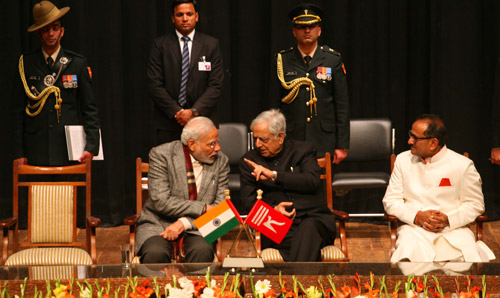

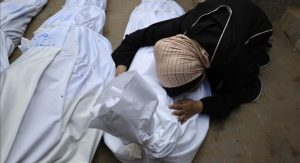
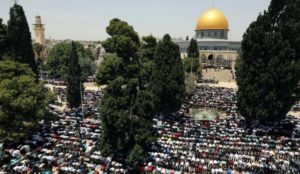
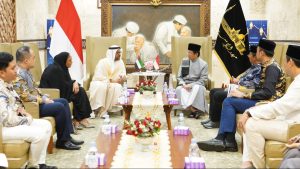

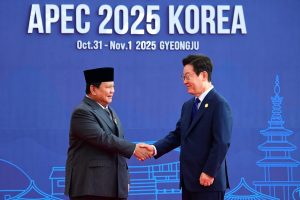
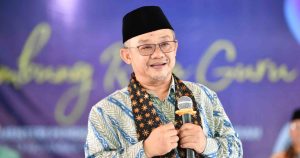

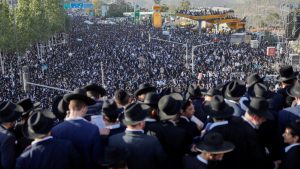

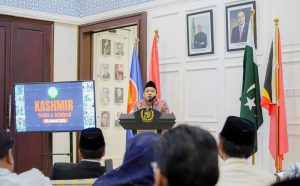
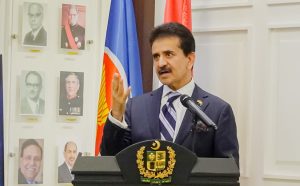


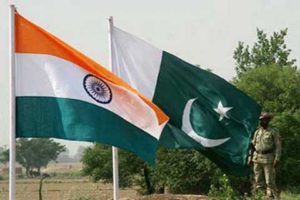







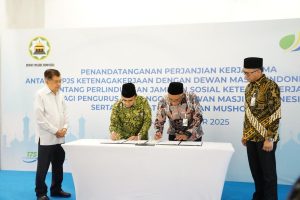
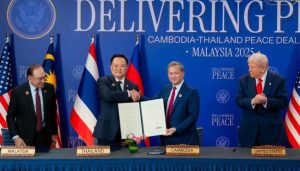
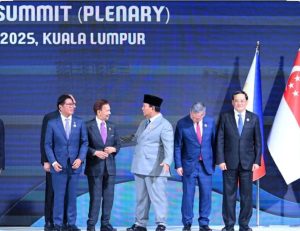
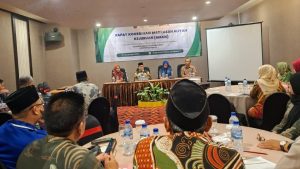
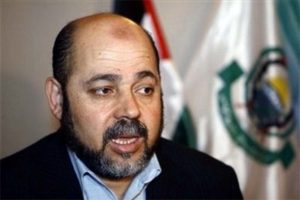




 Mina Indonesia
Mina Indonesia Mina Arabic
Mina Arabic